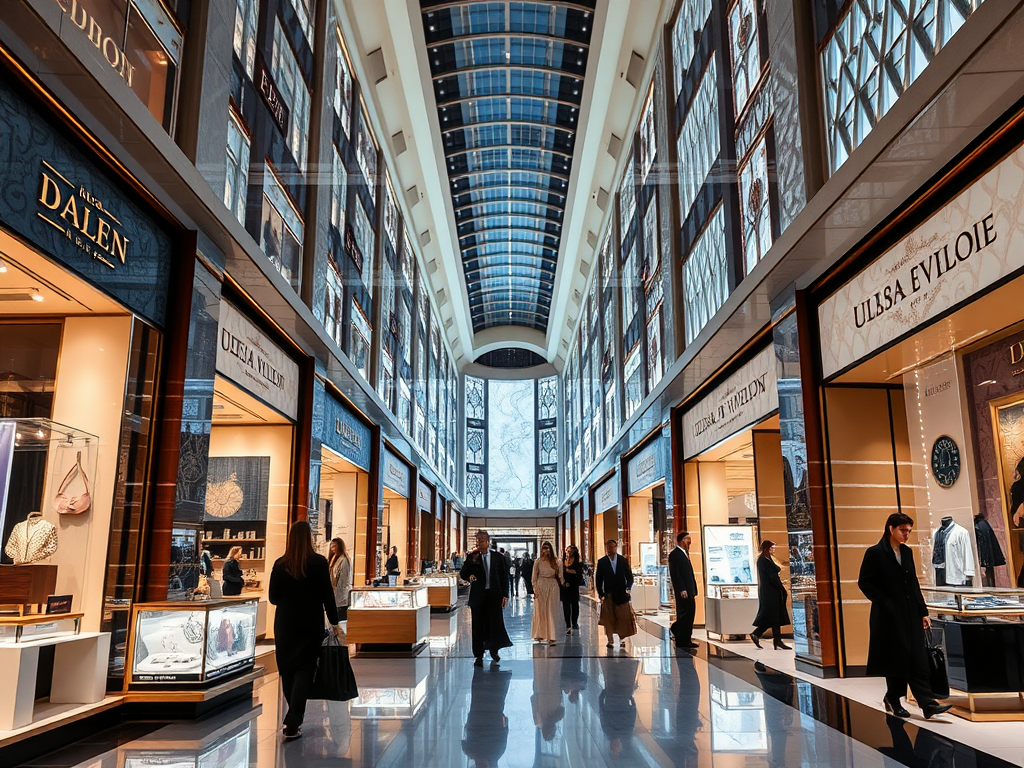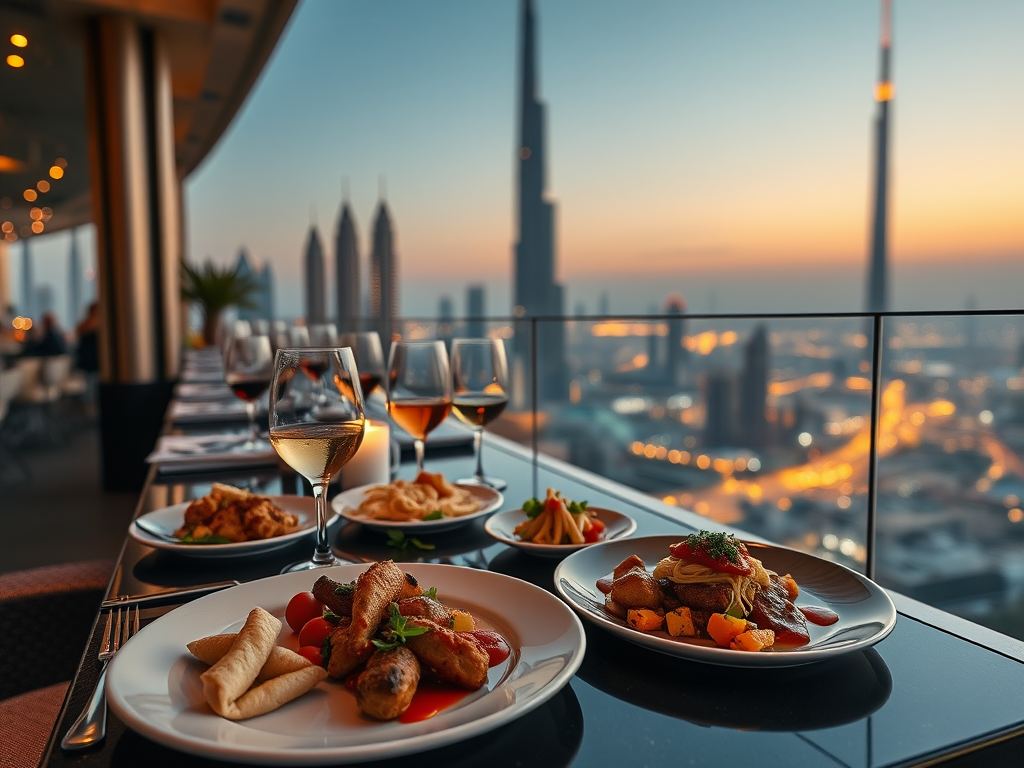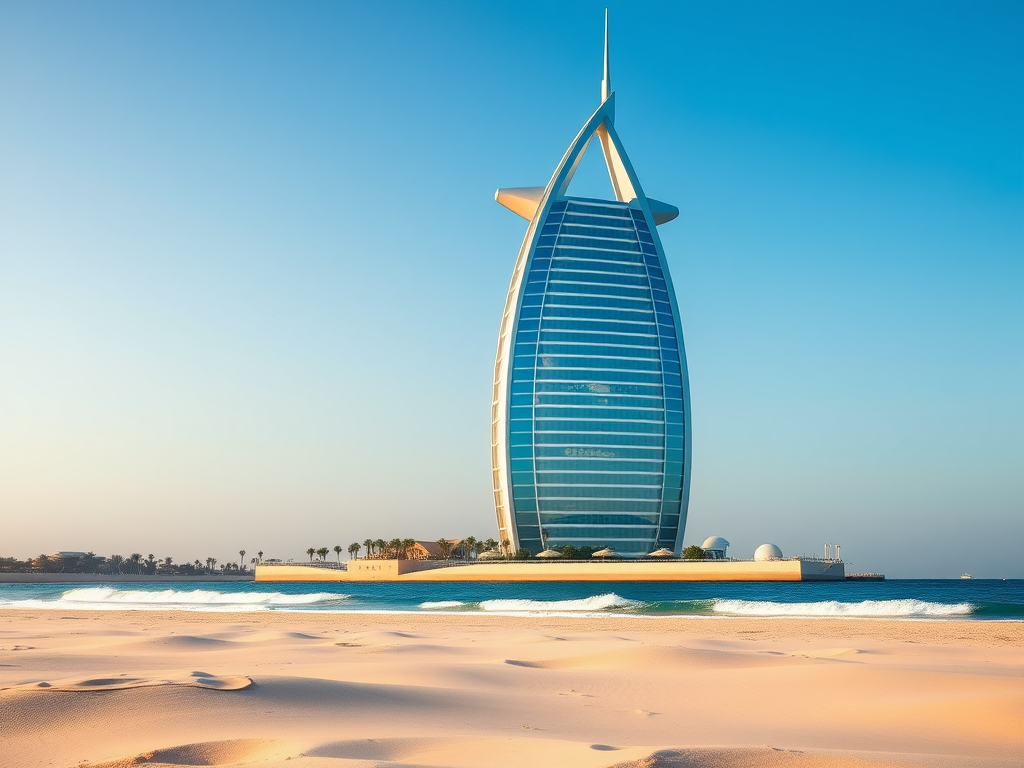Dubai’s luxury market demonstrates remarkable resilience against global economic downturns, primarily due to a trifecta of factors: a diverse clientele, strategic investment in infrastructure, and innovative marketing strategies. This opulence magnet continues to attract affluent consumers worldwide, keeping its luxury sector buoyant amidst economic struggles elsewhere. Wealthy individuals from around the globe view Dubai as a sanctuary of prosperity, where high-end brands thrive in an environment designed for extravagance and exclusivity.
The Dubai Experience: A Unique Blend of Luxury and Innovation

The allure of Dubai’s luxury market lies in its unique blend of extravagant experiences and ultramodern infrastructure. Often dubbed the “City of Gold,” Dubai epitomizes affluence with attractions including:
- Luxury shopping destinations like The Dubai Mall and Mall of the Emirates.
- World-class hotels and resorts, such as the Burj Al Arab and Atlantis, The Palm.
- High-end entertainment options like private yacht charters and exclusive desert safaris.
- Gourmet dining experiences featuring Michelin-starred chefs.
- Exclusive events such as the Dubai Shopping Festival and Art Dubai.
This unique blend keeps affluent global tourists returning, injecting a steady flow of revenue into its luxury market. Furthermore, the city is committed to continual innovation, evidenced by its groundbreaking real estate projects and advanced technological integrations in retail.
The Strategic Role of Expatriates

Dubai’s demographic landscape plays a crucial role in sustaining its luxury market’s resilience. The city is home to a significant expatriate population, contributing to a wealthy consumer base that demands high-end goods and services. Influential expatriates not only invest in luxurious lifestyles but also introduce international luxury brands to diverse markets. The strategic location of Dubai acts as a gateway between the East and the West, allowing luxury brands to establish a strong presence and connect with affluent clientele from different cultures.
Moreover, Dubai’s favorable regulatory environment and tax incentives significantly bolster its luxury sector. The lack of personal income tax is particularly attractive to high-net-worth individuals. This policy allows them to allocate more resources towards luxury purchases. Additionally, the government promotes foreign investment and entrepreneurship, creating a landscape that facilitates luxury retail’s growth. The ability to secure attractive residency schemes for property investors further solidifies the city as a favored destination for the wealthy, enhancing its appeal as a luxury hub.
Marketing Mastery: Crafting an Aspirational Brand Image
Dubai has perfected the art of marketing luxury, positioning itself as the global capital of opulence. Its tourism campaigns highlight the city’s extravagant lifestyle, unparalleled attractions, and bespoke services. Key strategies include:
- Utilizing social media influencers and celebrities to showcase the luxury experience.
- Hosting high-profile events and exhibitions to attract global attention.
- Developing partnerships with luxury brands to create unique experiences.
- Tailoring marketing efforts towards high-net-worth individuals seeking exclusive offerings.
This marketing mastery ensures Dubai maintains its status as a premier luxury destination, even during challenging economic times.
Conclusion
In conclusion, Dubai’s luxury market successfully navigates global downturns due to its enticing combination of a diverse and affluent clientele, strategic investments, and innovative marketing techniques. The city’s unique attractions and favorable regulatory environment reinforce its position as a sanctuary for luxury consumption. As long as Dubai continues to evolve and adapt while celebrating its extravagant essence, it is poised to remain a bastion of luxury even amid global economic uncertainties.
Frequently Asked Questions
1. What are the key factors that make Dubai’s luxury market resilient?
The key factors include a diverse clientele, strategic investments in infrastructure, favorable regulatory environment, expatriate contributions, and effective marketing techniques.
2. How does the expatriate population influence Dubai’s luxury market?
The expatriate population represents a wealthy consumer base and introduces international luxury brands, enhancing the market’s dynamics and attractiveness.
3. What role does marketing play in promoting Dubai as a luxury destination?
Marketing plays a pivotal role by showcasing Dubai’s luxurious lifestyle through high-profile campaigns, influencer collaborations, and events that highlight exclusive experiences.
4. Why is Dubai considered a gateway for luxury brands?
Dubai’s strategic location between the East and West provides luxury brands access to diverse markets and affluent consumers, making it an attractive launchpad for global brands.
5. What are some of the luxury experiences one can find in Dubai?
Luxury experiences in Dubai include shopping in designer boutiques, dining at Michelin-starred restaurants, enjoying private yacht charters, and staying in opulent hotels.
